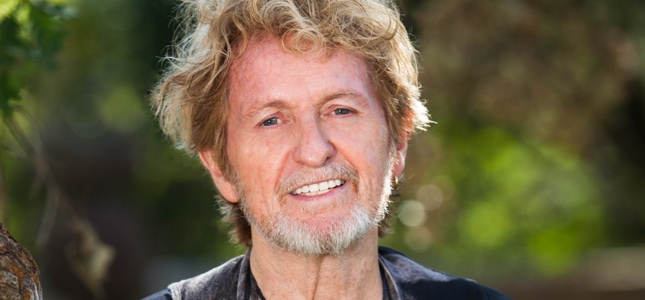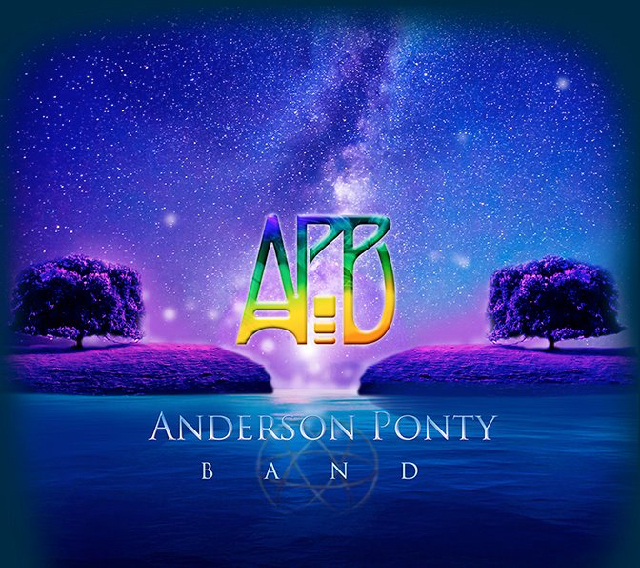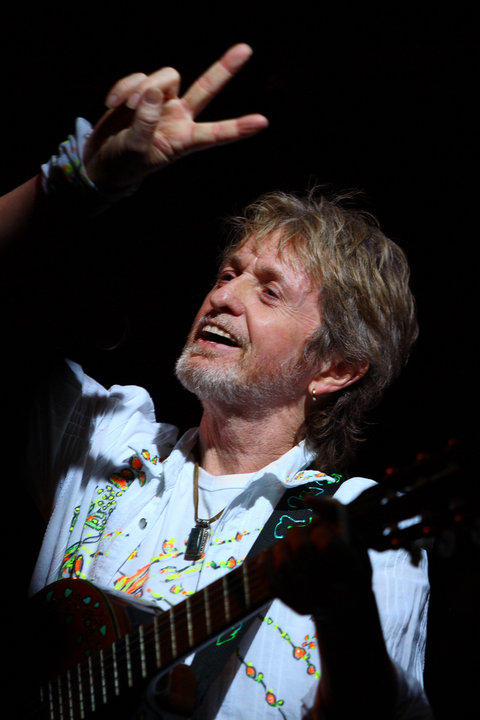YES’ JON ANDERSON – Better Late Than Never Is Better... Oh, Forget It
January 20, 2016, 8 years ago

Jon Anderson and Jean-Luc Ponty have recently completed invigorating tour dates for their Better Late than Never album, issued late last year, and first thought around these parts is how inspiring it is to see that a lead vocalist, at 71, still has so much more music in him.
Onward, figures Jon... “Yes, well, you know, I think, most artists sort of get into looking at the next ten or 20 years ahead, and that’s what I do. I’ve always done that. And it’s a progression of music. You think artistically, you want to develop and musically, you always want to develop. And that’s the way I feel. Very, very excited to… I got in touch with Jean-Luc in 2014, and we kept bumping into each other, and a friend of mine sent him a song we’d been working on, and there’s Jean-Luc playing like amazing. So we got in touch, and basically, I sang on one or two of his early—what do you call them?—hits or commercial songs that he had out, music in the ‘70s, and I just sang on top of them, some ideas, and I just enjoyed singing them and singing along with him. And I sent the ideas to him, and we hit it off, and we had a strong connection about music. I loved Mahavishnu and Frank Zappa, and he actually worked with them, Stanley Clarke, all these really very exciting musicians he’s worked with over the years. So it just seemed a natural event that we could actually write together. And that’s what we started thinking and that’s what we did. Over a period of a couple of months, we wrote some things, and then said, well, why don’t we get together and maybe do a couple of shows? And that’s how anything starts. It’s a natural progression.”

“To me, it’s ever-expanding,” says Jon, on the question of what he wants to achieve from a lyrical standpoint, at this anti-retirement stage of his life. “I think you get to that sort of stage in your writing, where, I don’t know, it’s getting to that kind of place of being a bit more clearer? (laughs), if you like, more defined about what you’re trying to say on every level. And over the years... actually, part of the project, we worked with people who have helped with the project through Kickstarter, and part of the deal with some of the people who have invested some money in Kickstarter, they wanted lyrics that I’d written, handwritten, as a present, you know? So I was rewriting lyrics that I wrote in 1978, I think it was, ‘Song of Seven,’ this song, and to read and then rewrite what I’d written, because I’d never really looked at it for, you know, 30 years, 40 years. And it just seemed like, wow, what was I thinking in those days? It was very spontaneous, and I’m still very spontaneous when I do lyrics.”
As for what song or full album he’d done in the past that felt the most autobiographical to him, Jon figures, “I think they all are. In some strange way, you know, if you can bring up one, I’ll talk about it, and explain why I wrote that piece. It’s like, I’ve always been very interested in the search for the truth of why we live, and what the point of living is. I think that’s in everybody’s mind all the time, so I’m not the only person thinking that (laughs). So lyrically, I tend to jump into that ocean of possibilities, as to why we live, and then come up with some form of understanding on my side, and I put it into a lyric. And that’s how it stems forth.”
One supposes there’s no larger sledge from the canon than the magnificent “Close to the Edge.”
“‘Close to the Edge’ is realization,” reflects Jon. “I’d actually been reading books at that time by Herman Hesse, which was Journey to the East, Siddhartha, and these are very enlightening books for me because there wasn’t anything in scriptures that I tended to appreciate as much as what Herman Hesse was writing about, which was the understanding that we are collectively one on this planet. This is sort of a broad statement here, but he was saying that the journey to the east is a realization that God can be found anywhere, everywhere. Because God is all that is.”
“And in a sense that grew upon me. So when I was singing, ‘Close to the edge, round by the corner.’ Actually, Steve wrote the lyric, ‘close to the edge,’ in a sort of song to me, singing to me. He said, ‘I just started this song this morning, “Close to the edge, round by the corner.”‘ And I sang, ‘Down by the end, down by the river’ because in Siddhartha, the river was the sort of the pinnacle of the book, where he realized that the river is like the soul. All of the rivers meet in the same ocean. So all the souls meet the same divine spirit of God, what we call God or whatever you want to call it. But it’s the idea that we collectively, worldwide, we all are connected as one.”
“And when you start writing ‘A seasoned witch could call you from the depths of your disgrace,’ which is what I wrote, that’s a line relating to the fact that your soul consciousness, your higher self, will bring you to a realization. So I wrote it in a different sort of rhythmic fashion: ‘A seasoned witch could call you from the depths of your disgrace.’ There’ll always be your higher self grabbing hold of you from your point of confusion and disgrace of life or why am I here, what am I doing? But your higher self will call you and say, hey, no worries. Everything is okay. Nothing matters. You’re living this experience. It’s important to grow. And that’s what life’s all about. You know, you get up, you get down. The whole idea is the constant flow of realization. It was always close to the edge of realization—for me, anyway.”
“One other thing, with Steve, it’s like, the middle of ‘Close to the Edge,’ you have this song, ‘two million people barely satisfy.’ ‘I get up I get down.’ And that’s me singing to his chords. So the next day, we were going through the song again, and then I just heard him using the same chords, singing another song. I said, ‘What’s that?’ He said, ‘Well, before I played you these chords, I’d actually written this other song, “In her white lace, she can clearly see the lady looking...”‘ And I said, ‘Wow, why don’t we just put them together?’ So that’s what we did. We stuck them together with super glue. And it’s kind of magical. You have two songs, moving together, creating that little section of ‘Close to the Edge.’ And that’s one of the reasons it worked.”
That momentous track is a maelstrom of music, but don’t for one minute think that Anderson Ponty band’s Better Late than Never is a wallflower like, perhaps, some of Jon’s more new age-y affairs. The love of loud prog lives on...
“Well, it’s an interesting term,” laughs Jon. “It is progressive music. Yeah, the rhythm section, you’ve got Rayford (Griffin) and Baron (Browne). Rayford Griffin, this guy, this drummer, is seriously hot (laughs). He’s really amazing. And Baron is just pocket bass; he just does it. It’s like I never even have to... when we were rehearsing, I never talk to him about what to play. He just played everything correct. He just played everything right. And it just flowed beautifully, you know? And Wally (Minko) is a brilliant keyboard player. And of course Jean-Luc is a master. He truly is definitely a master of the violin, and he’s very, very musical. And we were just... we were really just getting to know each other a little bit. We spent a couple of weeks together, and made the video, and made the record, and it turned out to be very, very exciting. It took its time, like anything.”

As aluded to above, it’s remarkable to have a rock singer singing so well into his '70s. One wonders how Jon has managed to not flame out, like so many before him.
“I don’t know. I like singing. I sing almost every day. In some ways, I was never a screamer. I was really not, very, sort of, methodical about singing a certain way, even though I did sing in the high register. I’m not quite as high register anymore. But I sing in a certain sort of style that I can feel comfortable about, and I don’t go... well, now and again I go the wild, and I go crazy on stage a little bit, but I don’t overdo it. I just keep myself within myself when I sing, and make sure I don’t strain. Because there have been times on tour, where you’re on tour for two or three weeks, and you start feeling like you need to get some more medication for your throat, because it’s getting sore, and you’ve got to be very gentle with your throat and your larynx, you know? Like anything, it’s my instrument. So I’ve just got to take care, and I do.”
In closing, I had Jon contrast working with Jean-Luc, with Vangelis, the latter being a partnership that bore particular fruit commercially speaking.
“It’s the same,” figures Anderson. “It’s a spontaneous event. It’s like, when I would listen to Vangelis, I would spontaneously sing. And the same with Jean-Luc. When we were working on the album, I was just checking a song, and then my actions went to another song, and I thought, well, that’s really cool music, who is that? And I went and looked, and it was Jean-Luc’s album, which is called Mystical Adventures. And right away I wanted to sing on it. So I downloaded it and sang on it and sent it to Jean-Luc, who sent me another track, which is the third track, and linked them together to form a piece. And I said, we could do this on tour. That’s really interesting. I liked the music, and he said, ‘Well, it’s one of those albums I did, and I just did it and forgot all about it.’ And it was just a real fun album, very rhythmically interesting, with some very, very interesting melodies that he performed. And he inspired me to sing. And that’s basically what happens when you’re working with someone. They inspire you to sing. It doesn’t matter where it comes from, as long as you’re inspired.”
(Top photo by Cathy Miller)











